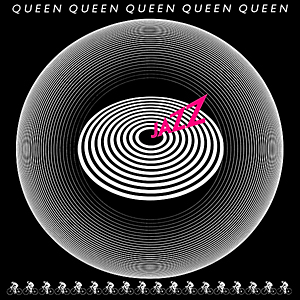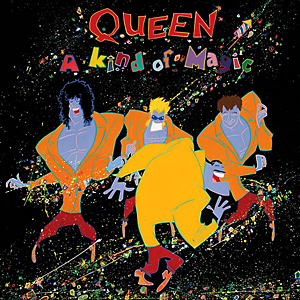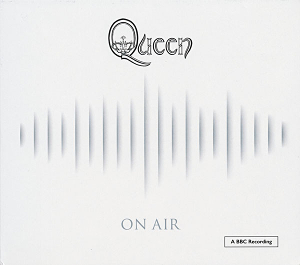About "Staying Power"
"Staying Power" is the first track on Queen's 1982 album Hot Space. It was written by lead singer Freddie Mercury and is notable as being the only Queen song to have a horn section, which was arranged by Arif Mardin. The song is driven by a funk-styled bass riff (played by Mercury) beginning in D minor and modulating to E minor throughout the song. John Deacon does not play bass guitar on this song—instead playing rhythm guitar on a Fender Telecaster. Roger Taylor programmed a Linn LM-1 drum machine for the track. Brian May is on his Red Special. In a Stylus review of the album, critic Anthony Miccio described the song's style as "an electro-disco track with frenetic horns."The song was released as a single in Japan.
Top songs by Queen
 Bohemian Rhapsody
Bohemian Rhapsody Somebody To Love
Somebody To Love I Want To Break Free
I Want To Break Free We Are The Champions
We Are The Champions We Will Rock You
We Will Rock You Love Of My Life
Love Of My Life A Kind Of Magic
A Kind Of Magic Killer Queen
Killer Queen Radio Ga Ga
Radio Ga Ga Crazy Little Thing Called Love
Crazy Little Thing Called Love Another One Bites The Dust
Another One Bites The Dust Under Pressure
Under Pressure I Was Born To Love You
I Was Born To Love You Fat Bottomed Girls
Fat Bottomed Girls The Show Must Go On
The Show Must Go On Don't Stop Me Now
Don't Stop Me Now Bicycle Race
Bicycle Race Who Wants To Live Forever
Who Wants To Live Forever Innuendo
Innuendo Hello Mary Lou
Hello Mary Lou Too Much Love Will Kill You
Too Much Love Will Kill You God Save The Queen
God Save The Queen Breakthru
Breakthru Delilah
Delilah I Want It All
I Want It All These Are The Days Of Our Lives
These Are The Days Of Our Lives 39'
39' These Are Days Of Our Lifes
These Are Days Of Our Lifes You're My Best Friend
You're My Best Friend Big Spender
Big Spender It's A Beautiful Day
It's A Beautiful Day Dancer
Dancer
"Staying Power" video by Queen is property and copyright of its owners and it's embedded from Youtube.
Information about the song "Staying Power" is automatically taken from Wikipedia. It may happen that this information does not match with "Staying Power".
SONGSTUBE is against piracy and promotes safe and legal music downloading. Music on this site is for the sole use of educational reference and is the property of respective authors, artists and labels. If you like Queen songs on this site, please buy them on Itunes, Amazon and other online stores. All other uses are in violation of international copyright laws. This use for educational reference, falls under the "fair use" sections of U.S. copyright law.

























